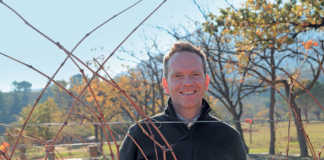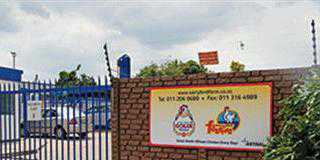
Photo: Lloyd Phillips
The scientific name for cocoa, also known as cacao (Theobroma cacao) elsewhere in the world, reportedly means ‘food of the gods’.
Any chocoholic is likely to agree that this is an apt description for one of the world’s most pleasurable food ingredients. Yet modern commercial cocoa farming and processing have sometimes lacked the ‘romance’ that it has been widely associated with.
READ:US chicken farmers sue poultry companies for alleged corruption
Reports of child labour being used on cocoa farms and farmers being physically assaulted for establishing plantations in protected rainforests and being grossly underpaid for their product, which generates large profits further up the value chain, have begun to curb the appetite of increasingly conscientious consumers for cocoa-based products.
The dark side of cocoa
The multinational food, health and wellness company, Nestlé Global, has long been renowned for the diverse range of cocoa-based products that it manufactures and markets around the world.
The company says that it had been made increasingly aware of the dark side of cocoa farming, and risks the wrath of its consumers for appearing to overlook any illegal and/or unethical activities within its cocoa supply base.
It therefore decided that something drastic needed to be done to remedy the situation, and implemented the Nestlé Cocoa Plan (NCP), which is currently active in Côte d’Ivoire, Ecuador, Ghana, Indonesia, Mexico and Venezuela.
“The Nestlé Cocoa Plan aims to increase our suppliers’ profitability, secure high-quality cocoa for our business, and address supply chain issues such as child labour, gender inequality, and poor social conditions,” a company statement said.
The West African country, Côte d’Ivoire, is the world’s largest cocoa producer by volume – about 1,65 million tons annually – amounting to approximately 33% of global supply, according to the World Cocoa Foundation (WCF). This production, along with that of Ghana, Nigeria and Cameroon, means that Africa currently produces about 68% of the world’s raw cocoa.
Approximately 15% of the balance is produced in Brazil, Ecuador and Colombia, and the remainder is produced in Indonesia, Malaysia and Papua New Guinea.
As Nestlé has a special interest in the development and success of its cocoa bean suppliers in Côte d’Ivoire, the company established a high-tech research and development (R&D) centre in the coastal city of Abidjan in 2009.
This was the first Nestlé R&D centre in Africa and its goals include developing appropriate tools to allow Côte d’Ivoire’s cocoa farmers to produce the best quality cocoa beans ethically, sustainably and profitably, as well as improve the socio-economic circumstances of these farmers and their communities.
Nestlé currently buys and processes over 400 000t of cocoa beans annually. In 2015, the company was able to source just over 100 000t of beans that had been produced according to international standards for human and environmental rights, through its NCP. Plans are currently underway to increase this number annually to reach 175 000t of cocoa beans by 2018.
Social upliftment programme
“Through the NCP, we distribute stronger plants, train farmers in better agricultural practices, support women farmers, and improve access to education for children,” the statement said.
Since 2011, the NCP reportedly provided training to 44 617 cocoa farmers, distributed five million cocoa seedlings, and built or refurbished 40 schools in Côte d’Ivoire.
This year, the NCP is working with the Fair Labour Foundation to further implement the Child Labour Monitoring and Remediation System (CLMRS) in the country. CLMRS has already been introduced to nearly 35 000 cocoa farmers in 40 of Côte d’Ivoire’s cocoa farming cooperatives.
R&D centre
Cheikh Mboup is head of agronomy and plants sciences at Nestlé’s R&D Centre in Abidjan. He says that one of the centre’s main focuses is to develop improved cocoa plant varieties in terms of production and tolerance to diseases.
“Currently, the average yield of dried cocoa in Côte d’Ivoire is only 300kg/ha to 500kg/ha, and the average size of a cocoa plantation is 2ha to 5ha. The varieties that we are developing here at the R&D centre can yield 1,5t/ha to 2t/ ha. To be able to achieve these improved yields, farmers growing these new varieties must have suitable training and knowledge.
“Nestlé is therefore providing them with both the higher performance cocoa varieties and with appropriate training free of charge. [Farmers are] also paid a premium for cocoa deliveries of consistently good quality,” he explains.
Mélanie Polman, manager of plant propagation at the centre, says that the somatic embryogenesis process is used, as it offers the potential to propagate the millions of clonal cocoa seedlings needed for distribution to Côte d’Ivoire’s farmers.
“Good planting material provides cocoa farmers with a great start to enhance the quantity and quality of production. This can increase cocoa farmers’ incomes in a sustainable way,” she says.
Farmer co-ops
Most of Côte d’Ivoire’s cocoa farmers are members of cooperatives that represent their interests with regard to various aspects of cocoa farming and marketing the raw cocoa beans.
These cooperatives provide Nestlé with the ideal platform from which to distribute the resources, skills and back-up support the country’s farmers need to assist them in ethically and sustainably improving their income, and enhancing the quality and reliability of the cocoa supply that the company needs.
One of these is the 606-member strong cooperative SCOOPADEF de Gagnoa about 270km northwest of Abidjan. SCOOPADEF’s general manager, Koffi Pacôme, says his cooperative of cocoa farmers has been in existence since October 1991.
However, in recent years it has become increasingly organised with guidance from the NCP, Côte d’Ivoire’s National Extension Service for Rural Development (NESRD), Fairtrade International, and the Rainforest Alliance.
“We own cocoa handling infrastructure such as sheds, offices, road transport vehicles, tractors, and agricultural implements,” Koffi says. “Much of it is very old, but we are hoping to get support to change this situation.”
He says that SCOOPADEF’s main activities include marketing, facilitating ongoing training, facilitating support to rehabilitate farms if they become rundown, fighting against child labour and gender equality, and facilitating financial and material support for members.
SCOOPADEF also ensures that members strictly adhere to the requirements of its much-prized certification from Fairtrade, the Rainforest Alliance and UTZ.
“We don’t only want our members to produce cocoa ethically, sustainably and profitably. We also want them, their families and their communities to benefit from literacy programmes, and improved socio-economic conditions,” Koffi says, adding that the co-op wants to see sustainable development in cocoa farming areas and the communities that depend on them.
Raw cocoa bean price
David Loue, head of agronomy at SCOOPADEF’s marketing partner, Olam Cocoa, says the price of raw cocoa beans in Côte d’Ivoire currently stands at 1 000 CFA francs/kg (R24,70/ kg). To fully benefit from this, the cooperative’s members need to produce as much quality cocoa as possible.
The material and technical support being provided by Nestlé to SCOOPADEF and similar cocoa cooperatives in Côte d’Ivoire is crucial in this regard.
“If the climate is good, SCOOPADEF’s members could collectively produce about 500t of dried cocoa beans this year [valued at about R12,3 million]. The cooperative receives 80 CFA francs (R1,98) for every kilogram sold by farmers. This income is used to pay for SCOOPADEF’s operations,” Loue says.
The national base price for raw cocoa in Côte d’Ivoire is reviewed and adjusted three to four times a year. SCOOPADEF’s members each own cocoa plantations that average 5ha in size and their current average yield of dried raw cocoa beans vary between 450kg/ha and 550kg/ ha.
If they correctly manage the cocoa trees and the weather plays its part – climate change is a big concern for Côte d’Ivoire’s cocoa farmers, they can dramatically increase their yields and their income.
In-field training
Another group of SCOOPADEF members live in the nearby rural village of Ouikao. The chairperson of this group is Kouassi Koua, who has 3,5ha of cocoa trees close to the village.
He explains that information on cocoa farming received from Nestlé, NESRD and other organisations is disseminated to the village’s cocoa farmers in weekly theoretical and practical classes held in-field under the shady canopy of mature cocoa trees.
“These classes keep us up to date with which best practices we can use to produce the biggest and best quality cocoa yields,” Kouassi says.
During a visit to Ouikao village’s cocoa plantations, the tour group attended one of these in-field classes on cocoa farming. The theme of the day’s lesson was the importance of effective pruning to improve fruit size so that more cocoa beans can be harvested to increase income.
The tour group was told that each mature cocoa tree should have three to five stems to achieve the best fruit size. “While the old cocoa tree varieties that we used to grow took four years to start bearing harvestable fruit, the new varieties from Nestlé take only 18 months from planting to first harvest.
“The new cocoa tree varieties can also be harvested up to three times a year, depending on how much rainfall we get,” Kouassi says.
Child labour concerns
Ouikao village’s cocoa farmers say they have been sensitised to child labour, and now understand that it is undesirable and illegal to use it. They also appear to appreciate that if child labourers are discovered in their plantations they will not receive premium prices for their cocoa harvests,or may not be able to sell their beans at all.
However, Nestlé is under no illusion that there will almost always be pockets of its raw cocoa bean suppliers that reject calls for the banishing of child labour.
“No company sourcing cocoa from Côte d’Ivoire can guarantee they have completely removed the risk of children working on small farms in their supply chain. Nestlé is no different, but we are determined to tackle the problem. The use of child labour is unacceptable and goes against everything we stand for.
We’ve set ourselves the goal of eradicating it from our cocoa supply chain and have put a dedicated action plan in place. We have made important progress with this action plan, but we acknowledge that as long as there are children working on cocoa farms, there will always be more to do,” the statement from Nestlé said.
There is still a long way to go to achieve the ambitious, but necessary, goal of improving the long-term ethics, sustainability, profitability and overall socio-economic benefits of cocoa farming in Côte d’Ivoire.
The world’s chocoholics can, however, enjoy their favourite confectionery knowing that efforts appear to be on the right track.
- Visit www.nestlecocoaplan.com.
- All travel and accommodation costs for Lloyd Phillips’s visit to Côte d’Ivoire were sponsored by Nestlé South Africa
This article was originally published in the 29 July 2016 issue of Farmer’s Weekly.













